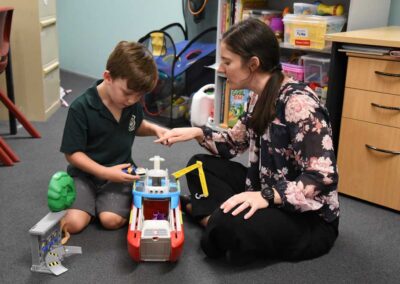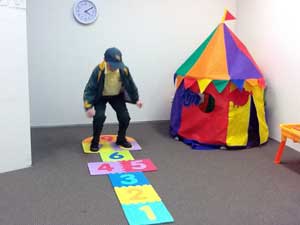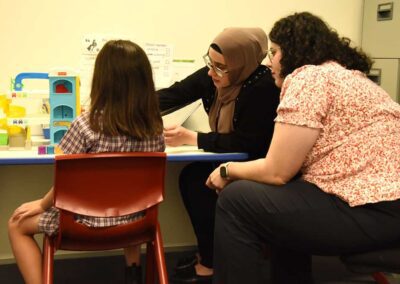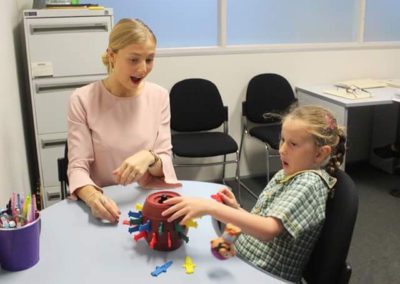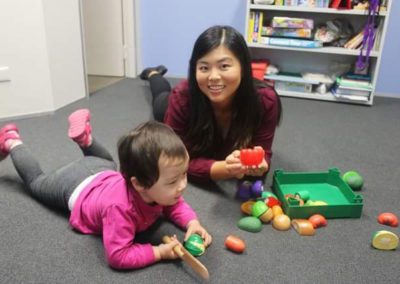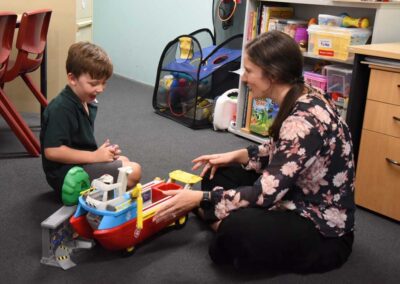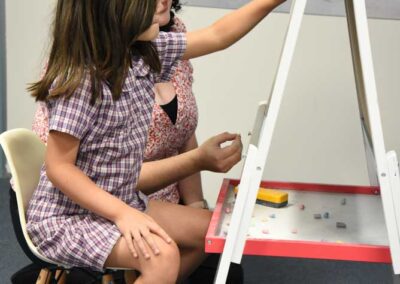As speech pathologists, we understand the crucial role that conversations play in a child’s development. Whether it’s exchanging stories about their day or expressing their thoughts and feelings, your child’s conversations form the basis of their social interaction and language acquisition.
Here are some valuable strategies and tips to help you facilitate meaningful conversations with your child:
Create a Language-Rich Environment 
Surround your child with opportunities to engage in conversation. This could involve reading together, discussing everyday activities, or simply chatting during mealtimes or car rides. The more exposure your child has to language, the better equipped they’ll be to express themselves.
Follow Your Child’s Lead
Pay attention to your child’s interests and cues. Follow their lead in conversation topics and activities. By showing genuine interest in what they have to say, you’re validating their thoughts and encouraging further communication.
Use Open-Ended Questions
Instead of asking yes/no questions, try to ask open-ended questions that encourage your child to elaborate. For example, instead of asking, “Did you have fun at school today?” you could ask, “What was the most exciting thing you did at school today?”. Asking ‘why’ or ‘why do you think?’ questions is a great way to get your child talking more, as they can’t simply give a one-word answer. For example, when driving in the car, you could ask “Why do you think we have to stop at the red light? What would happen if we didn’t stop?”
Practice Active Listening
Give your child your full attention when they’re speaking. Maintain eye contact, nod in acknowledgment, and respond appropriately. This not only shows respect for their thoughts but also models good listening skills for them to imitate. While this is not always possible in our busy lives, setting aside time in your week to do this is invaluable.
Encourage Turn-Taking
Teach your child the importance of taking turns in conversation. Practice this by engaging in activities like storytelling or playing simple games where each person gets a chance to speak and listen.
Provide Feedback and Expansion
When your child speaks, respond thoughtfully. Offer feedback on what they’ve said and expand on their ideas. You can do this through adding more detail to what they have said and correcting their grammatical structures. This demonstrates that you value their contributions and helps enrich their vocabulary and language skills. For example, if a child comments about a picture of giraffe saying, “Giraffes has long necks”, you could add “Yes giraffes have long necks. That’s so they can eat the leaves at the very top of the tree”.
Encourage Story Telling
Ask your child to retell the story plot of a favourite book or movie, helping them supportive questions, e.g. “What happened after she broke the chair?”. Practising telling narratives is a valuable skill for developing language skills and helps children relate information in a structured and organised manner.
Be Patient and Supportive
Remember that communication skills take time to develop. Be patient with your child as they navigate their journey. Offer praise and encouragement for their efforts, even if they struggle at times.

Seek Professional Help if Needed
If you have concerns about your child’s speech or language development, don’t hesitate to seek guidance from a qualified speech pathologist. Early intervention can make a significant difference in addressing any underlying issues and promoting healthy communication skills.
Remember, every conversation with your child is an opportunity for growth and connection. By implementing these strategies and fostering a supportive communication environment, you’re laying the foundation for your child’s development of social and communication skills.



